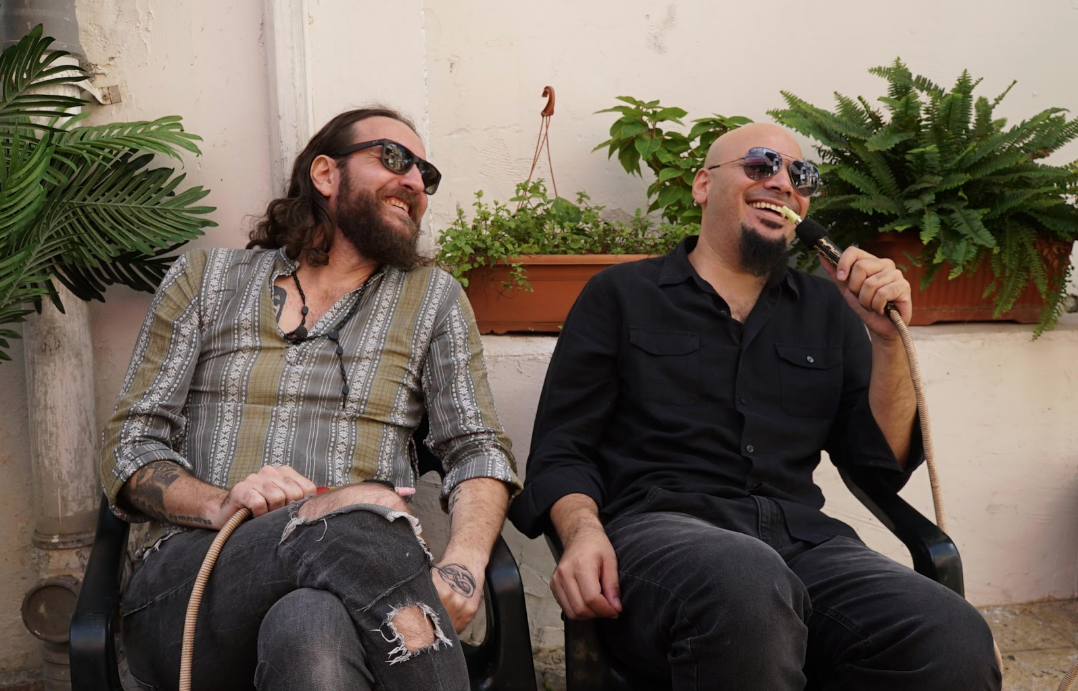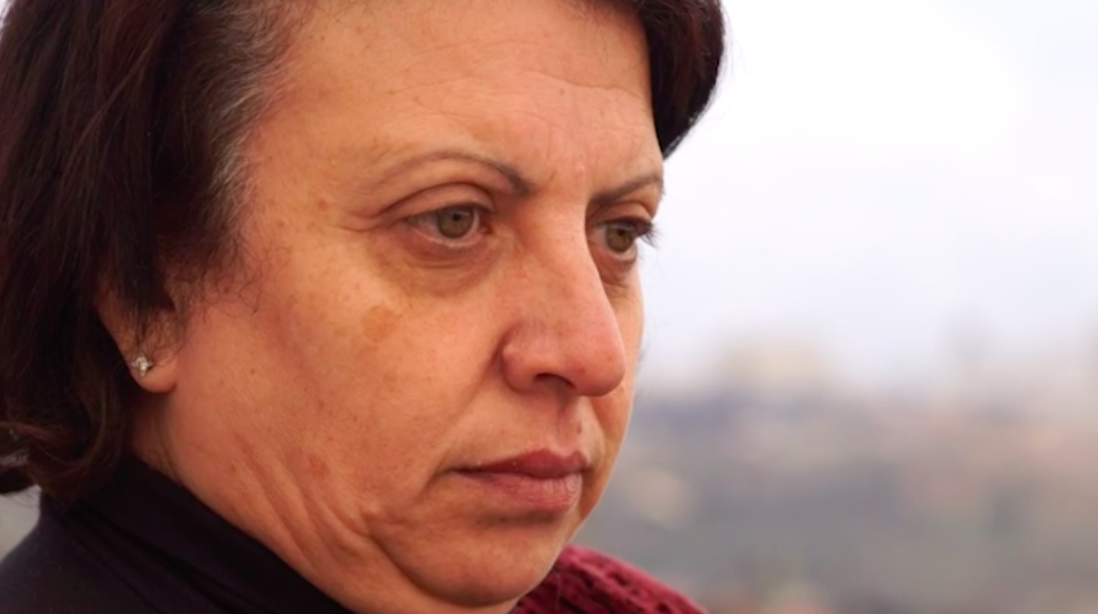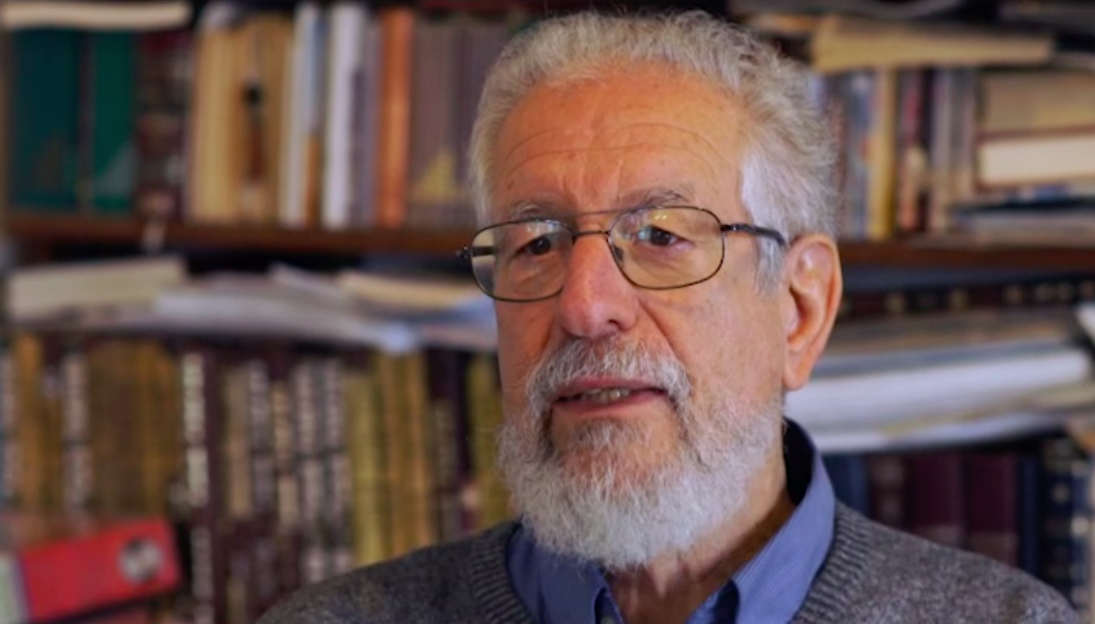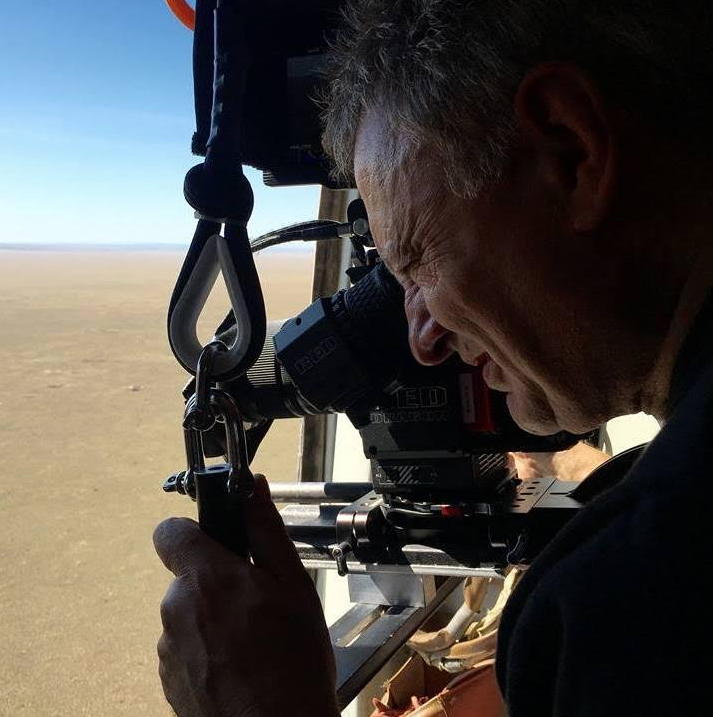KOBI FARHI AND ABED HATHOUT

I knew I wanted to meet a range of people in Israel and Palestine so we started by looking for archetypes from the four corners of the discourse – left and right wing Israelis and Palestinians. Someone pointed out that the problems all come from extremists so why was I not going to speak to them?
I think we hear about extremists views and actions all the time but the reality is that at least 90% of Israelis and Palestinians do not hold such views, and I wanted to meet some of them, what I would call ‘normal people’ just trying to live their lives. Spotlighting extremism has gotten us nowhere, perhaps meeting more mainstream people can?
First up we went looking for friendships between Jews and Muslim Palestinians. This struck a deep chord within me because of my own long-standing friendship with Tamer Al Ghussein, who I had randomly met in a nightclub in London when I was 17.
Tamer was far more London than he was Palestinian and he himself never said anything to me about the plight of the Palestinian people until about a year before he died of cancer, 31 years after we first met. Instead I became aware of what had happened to his family who’d lost land, and in some cases fled, through osmosis. Things I heard while we were at his house obsessing about fashion, music, and London’s nightlife.
Like myself and Tamer, the bond between Kobi and Abed was formed through a mutual passion, both loved metal. Their story had made news headlines but as Abed points out in the Tinderbox, if you asked someone white in the States if they have any African American friends they would look at you like you were crazy, thinking ‘of course I do.’ So why should a friendship between an Israeli Jew and a Palestinian Muslim be a news story?
Kobi who was around when we first went over to film, is very well known in Israel as the lead singer of Israeli metal band Orphaned Land. There’s a lot on the web about Kobi, links below, so I’m going to keep this to my own experiences and the conversations he and I had.
Growing up in multi-racial Jaffa, Kobi became used to integration, however, as he says in the film, he was brainwashed by the Israeli media when he was a young teenager. This was helped by the words of his Uncle who told him that Arabs smile at you but you cannot trust them.
His much beloved Grandmother had a different point of view. She’d worked at a garment factory with Muslim Palestinian workers and become friendly with some of them. Kobi happened to be at her apartment one day when his grandmother’s friend Yusra phoned to wish them happy holidays. The factory had closed almost 30 years before and Kobi was amazed at the continuing friendship. It’s this moment that he credits with his own change of attitude, along with his development as a musician.
Kobi’s first band was looking for a distinctive sound and thought that it would be better, rather than mimicking famous metal bands, to use the Middle Eastern influences they were surrounded by. Bringing out, they believe, Oriental Metal for the first time.
Since then Kobi hasn’t looked back and the lyrics he writes all look at the conflict from the perspective of reconciliation that he’s become known for and has won a number of peace prizes for. With Abed and others as close friends, I was impressed by how closely Kobi lives by his own philosophy, using his art to learn, understand, and disseminate what he discovers.
The Only Way To Make Peace
FACEBOOK | INSTAGRAM | TWITTER
ABED HATHOUT – KHALAS
As I mentioned, Abed was originally intended to be a main character but as he was not around when we did most of our key interviews, we ended up having to use him more like one of our vox pop characters.
Abed particularly impressed me because of the extent to which he is both following his dreams as a musician, and doing his utmost, through initiatives like PALESTINE MUSIC EXPO, to enable other young Palestinian musicians to do the same, regardless of the obstacles they face, such as the difficulty of a West Bank musician to gain permission to gig abroad.
Again, there’s quite a lot online about Abed and Khalas, so links below and I will stick to my own experiences. Like Kobi, he too grew up in an integrated multi-racial city in Israel, Acre. It was a city full of musicians but metal was not part of this scene. Passionate about their music Khalas created a metal scene in the city, which has since spread.
Kobi and Orphaned Land were inspirations to Abed who met Kobi at a radio interview. I like to think that each recognised a kindred spirit, someone from ‘the other side’ determined to live peace.
Their continuing friendship resulted in a long tour in which the Israeli and Palestinian bands shared a tour bus for more than 6 months, and they’re still close friends!
It Could Be Heaven
Abed shorts 1 from MediaLab UK on Vimeo.
MUNA TANNOUS

Talking to Muna was the first sign that I would have to adjust my thinking when it came to finding my Palestinian characters. While left wing and right wing archetypes are common in the Western societies I’m used to, and indeed in Israel, in Palestinians I noticed something different – on the subject of the occupation most Palestinians have very similar views on the conflict.
And once you get away from extremists, most recognise that compromise will be necessary.
Muna, a school teacher, is Christian. Once forming almost 10% of the population, Palestinian Christians now form closer to 2%. And although they follow a different religion, these Christians are as Palestinian as their Muslim counterparts. Meeting Muna, her priest, and other members of the community, made me think about how we stereotype Palestinians. What would the film’s audience make of a Lutheran priest in a dog collar telling me he is not a second-class citizen?
In fact the film has become a study in how we margianilise and point fingers at others, never seeming to remember how our own actions contribute to our current positions. And it’s led me to think constantly about one of the things shared by the three Abrahamic religions – a belief that we should treat strangers well. For me it’s the failure of this concept, which we all claim to espouse, that needs urgent addressing. Can we remember our common humanity?
Palestine is Muna’s home, but with family links both to the UK and USA, resisting the temptation to move, like so many of her fellow Christians, has been hard, with jobs for young Christians particularly scarce.
This Is My House
MUNA short 1 from Tinderbox Film on Vimeo.
On Coexistence
MUNA short 1 from Tinderbox Film on Vimeo.
ISSA AMRO

When I still thought of Palestinian archetypes in terms of left and right wing, I went looking for an activist, someone with similar views to those who use violence. I also wanted a woman because I knew my 4th character was male.
Like Kobi and Abed, Issa is well-known in his field, and I’ve added links below for information that’s already public. We had incredible difficulty finding a female Palestinian activist who would film with us because of a combination of cultural modesty, and a trend amongst young Palestinian and Western activists against normalising – speaking to the other side. For the young woman who would have participated, she couldn’t bring herself to be in the same film as a Settler.
Issa is more pragmatic and realised that dialogue between all parties needs to happen if peace is to become a reality. Visiting Issa for the first time was surreal. We arrived at a parking lot sporting abandoned vehicles on the edge of what looks like a wasteland. We passed a young settler as we walked across it and I wondered whether there might be trouble but Issa nodded at him and said, ‘he’s ok.’
Issa lives and works in what I would have to describe as part hippy-commune, part dystopian castle, set upon a hill over-looking Shehuda Street. Formerly the Palestinian centre of old Hebron, the area is now surrounded by checkpoints with Hebron’s 1000-odd Jewish settler’s lives focused here. As a result Palestinian commerce has shifted and the street’s become a ghost town.
Our induction into life as a Palestinian in Hebron came swiftly as we witnessed a Settler openly engaged in an allegedly illegal build, in clear view of dozens of Israeli soldiers. We came down the steps to get a closer look and watched her bating and indeed being violent towards international observers who were watching Palestinian school children walking to and from school, hoping to keep them safe. Witnessing her actions made me embarrassed to be Jewish.
Israeli and International Policies
ISSA shorts1 from Gillian Mosely on Vimeo.
We Should Not Let Extremists Control Us
ISSA shorts 3 from Gillian Mosely on Vimeo.
YISRAEL MEDAD

Also no stranger to the media, more on Israel appears below. Of all my main characters, I was most worried about meeting Israel. For a number of years I have seen settlements as one of the key obstacles to implementing the two state solution and never thought I would go to one. In fact I hadn’t been to Israel in almost ten years when I started filming, because I felt increasingly uncomfortable witnessing the marginalisation of the Palestinians by the Israeli state, and unlike certain Jewish friends of mine, could not go and just experience the good bits.
Much to my surprise I emerged from this experience with a friend who is a settler, and not just any settler, but one who is, and has been, an important spokesperson for the movement. Israel grew up in NY not far from where I spent my own adolescence, and I was astounded to see that many of his attitudes were more akin to what I think of as liberal American Jewish social values eg gay rights and even human rights.
I think it’s safe to say that on the subject of the Palestinians, Israel and I agree on very little, although, like me, he does not believe that anyone in Israel should face discrimination. Where Israel and I diverge centres, unsurprisingly, on the question of the Jewish State and whether the need for this trumps all other considerations.
In its efforts to incorporate large numbers of Jews or part-Jews from around the world quickly, the State of Israel has built a number of box-cut towns and cities as settlements and even within Israel, which I found cold and soulless. While I respect Israel and his family for acting on their dedication, I cannot understand why anybody would want to live in such a place. And if at least part of the country is to persist as a Jewish state I have to wonder what such disregard for architecture says about us?
As the film took shape Israel took on two unique roles in the film. As a history lover, something we have in common, Israel explains several historic episodes. I became increasingly fascinated by this because despite his excellent grasp of history, I believe he’s created a number of work-arounds – to square facets of history that do not suit his arguments. Rightly or wrongly, Israel also fielded most of my toughest questions. The fact that he did so with good humour underscores what I said at the beginning, despite holding very different views about important issues, it is possible to be friends with people with whom we do not necessarily agree.
Demographics In Israel
Israel shorts 1 from MediaLab UK on Vimeo.
Is The Israeli Government Doing Right By Everyone?
Israel shorts 1 from MediaLab UK on Vimeo.
WIKIPEDIA | FACEBOOK | TWITTER
A NOTE FROM OUR DIRECTOR OF PHOTOGRAPHY

Working on The Tinderbox was really interesting. I have been Director of Photography on a number of projects in Israel and I thought I had a quite good sense of everyday life there. When Gillian asked me to shoot the film I was intrigued to see where her journey would take us.
I had no idea that feelings that I had previously encountered had only scratched the surface. Whilst making the film we were able to meet many people from all sides to try and understand the conflict today, and for them to share on camera first hand, their emotional and personal stories, viewpoints and circumstances.
On a map Israel doesn’t look a big country, we filmed in towns from Haifa down to the Dead Sea and Hebron. It struck me that there is so much unused land across Israel. Why would you need to build settlements on Arab land or take their homes and villages when there is so much land available? In Hebron what was the former main street, our
equivalent of Oxford Street, is now full of boarded up empty shops closed off to the local people by two checkpoints.
Issa who we met there, is regularly arrested when trying to help the local community. Kobi the lead singer of Israeli rock band Orphaned Land lives in Jaffa. His house belonged to an Arab family and he knows that they were displaced from it and worries about this. The Balata refugee camp in Nablus is still full today of generations of families who have to live there because their homes have been taken from them. I can only hope that one day there will be harmony in this region and that Israelis and Palestinians and Israeli Arabs will be able to live their lives as equals and share the same rights as human beings.